Last updated on July 22, 2023
The 13th edition of the AMNESTY FILM FESTIVAL will take place from Friday 4 to 6 November 2022 at the Reflet Médicis (3 rue Champollion – Paris 5). On the program, 3 days of human and committed cinema around the themes dear to Amnesty International. 3 highlights will punctuate the festival with the opening night (screening of KLONDIKE by Marina Er Gorbach), the competition night of short films, the closing night screening of LE CHANT DES VIVANTS by Cécile Allegra.
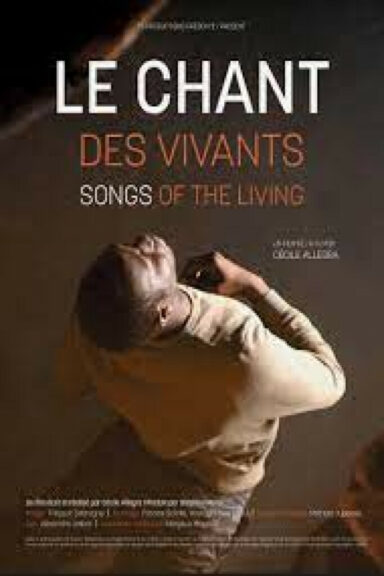
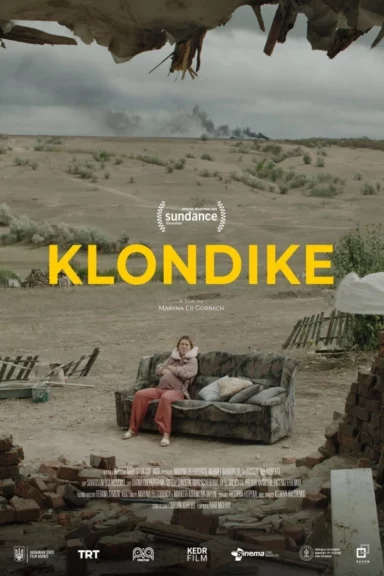
The whole program of the weekend in detail is available here.
Tickets are 6.50€, Ciné-carte CIP are accepted (Pass UGC are not). It is recommended to book your tickets.
This edition was made possible thanks to the involvement of the national secretariat of Amnesty International France, which provided support in the coordination with the teams, the location of films, the budget, and more recently in creation and packaging.
We had the opportunity to speak with Ievgeniia Sokova, the coordinator of the Amnesty Film Festival, to discuss with her the missions of Amnesty and of this particular and important festival.
C.R. The festival’s objective is to “touch consciences and hearts, to arouse commitment around a moment of cinema”, but also to make the festival a key event in the cultural life of Paris. But in the long run, how would you define the link between Amnesty International’s action and the cinema medium?
I.S. In two words: committed cinema.
The struggle for human rights is a global struggle, at all levels, which has no borders and for which all existing tools should be used without hesitation. Culture, and more particularly cinema, is a very strong means to tell a story, to pass a message, to create an emotion and thus to sensitize the public to several subjects around human rights, such as their violation or the fight for their respect. Our festival is a festival of committed cinema, which brings together the seventh art and the main missions of Amnesty. The physical event in Paris allows us to bring together people who are indifferent to these issues to exchange and find solutions, to know together how it is possible to change everything.
C.R. The Amnesty Film Festival is already in its thirteenth edition, how has the festival evolved over time and is it fulfilling its objectives?
I.S. The festival was created in 2010 by a group of volunteer activists from Amnesty International. Twelve years later, the festival, launched as a local initiative of committed cinephiles, has become a well-known festival on the Paris cultural scene, with a reputation for quality programming and encounters, and a loyal audience that comes to every screening every year. Moreover, regarding the programming, we have gone from lesser-known films to national and sometimes international premieres that have won awards at major festivals such as the Cannes Film Festival, Berlinale, Sundance, Venice Mostra… Today, our selected films are often nominated for and win Oscars, as well as other famous awards. We have incredible guests from the world of film and human rights. I find that all of this means that for a volunteer project, it is probably a great success. A lot of work has been done to get to this level for this thirteenth edition, and we are very proud of it.
C.R. What will be the highlights this year? Do you have any special advice for us?
We love all the films in our selection: we think each film is beautiful in its own way. If I have to give advice, I would say that you should choose the theme that interests you the most: the war in Ukraine, the right to abortion in the United States, the revolution in Chile… or another one! Regarding the highlights, there will be the opening night, the night of the short film competition on Saturday night and the closing night followed by a cocktail. These are evenings with speeches, guests, awards. They are therefore a little more special than the other sessions of the festival.
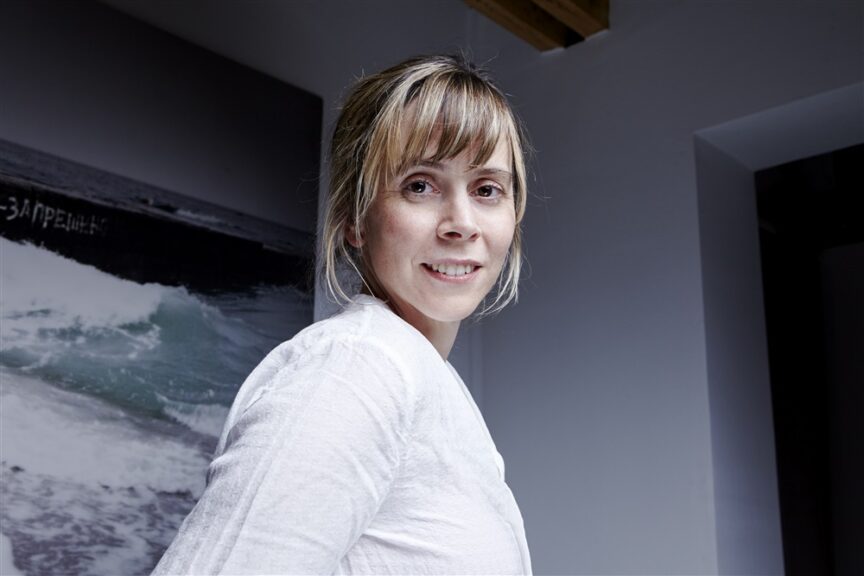
C.R. Your guest of honor this year is Cécile Allegra, why did you think of her?
I.S. We met Cécile Allegra in 2006, when we screened her documentary Voyage en barbarie as part of our sixth edition. This year, her new documentary Le chant des vivants is our closing film. Both speak of refugees but in very different ways, I would say opposite, and therefore show the incredible power of cinema: the power to break hearts and the power to repair them. Journey to Barbarity is a raw, crude documentary that shows us the horrors experienced by the six young survivors of the Sinaï desert camps. And Song of the Living is a very sweet film that shows how art can heal souls, heal wounds and give hope for a new happy life, freeing from past traumas. So we find Cecile Allegra to be a perfect person to talk about both the magic of cinema and how it is possible to use its power to create a commitment around human rights, which explains our choice.
C.R. You propose a program made of feature films and a competition of short films, on what criteria did you choose them?
I.S. There are several criteria, and we spend with the team in front of the screen several hours during months to make the preselection, and after we have debates to choose the best films to present to our public.
For the short films, we start with the basic criteria: the maximum duration of 25 minutes, to treat a subject around the theme of human rights, to be in French or with French subtitles, to be realized after January 1st, 2021… And of course, we take into account the quality and the topicality of
of its theme. For feature films, it’s the same. It’s a mix of different criteria: from technical criteria like the existence of French subtitles to artistic and thematic criteria.
C.R. Beyond the subject itself, what prevailed in the selection: the background viewpoint conveyed, the message addressed, or the cinematographic form, its originality or its plastic beauty at the service of the message?
I.S. The truth is that it’s all of these together. Sometimes we have pre-selected, for example, three films about refugees. Because, unfortunately (or fortunately!), our feature film selection only consists of six films. Of course we can’t program three films about refugees, so we have to choose one. How do we do this? We discuss with the team all the criteria you mentioned, as well as the organizational points: will the film be shown as a preview or not, if it has French subtitles or not, what are the screening conditions requested by the rights holders, etc. And, finally, we end up making our choice, even if it is not always easy. Also, the last important criterion before validating a film is unanimity. This year, the selection team is composed of 6 people, even if all of us are film lovers and people committed to human rights, we are still quite different, from different backgrounds and with a different taste. So to find objectivity, the rule is simple: if everyone finds the film strong and that it has its place in the program, it’s good, the film is retained.
C.R. Are the topics selected in line with Amnesty’s priorities on the ground in 2023?
I.S. For each edition, films are chosen based on Amnesty’s main missions, such as the right to protest, sexual and reproductive rights, the fight against the death penalty, the fight against discrimination and others. They are therefore more or less all related to Amnesty’s work: past, present or future. Some of the selected films are often also supported by Amnesty, that is to say that outside the festival these films will have an educational file, they will be accompanied, several screenings debates will be organized. This is, for example, the case of the documentary My imaginary country by Patricio Guzmán, which is part of a major campaign by Amnesty International for the right to protest.
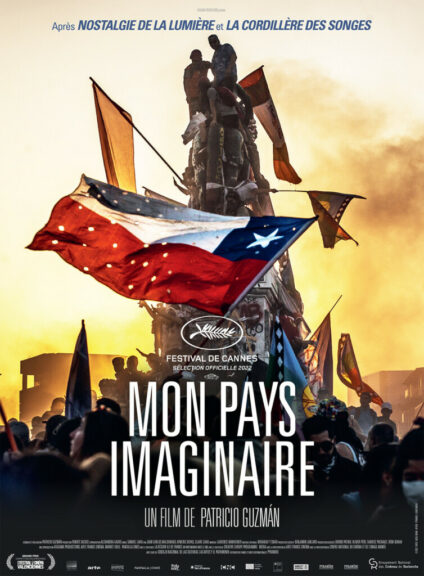
C.R. No short film deals with the Russian, Ukrainian or Iranian news that dominates the media. Nor do they deal with less publicized conflicts, such as the one between the Azeris and the Armenians, the Uighurs, or the numerous conflicts in Africa. Some of the short films evoke past situations. Do you think it is important to be in the present or on the contrary to appeal to the memory, in order to emphasize that what is happening today was already happening yesterday, and will probably happen tomorrow? Does Amnesty’s action focus more on the specific cases of people whose rights are violated than on universal causes in which other organizations would have a more important role to play?
I.S. To begin, I would like to point out that there are only seven short films in this year’s competition. And every year, it’s about the same number to respect the length of a cinema session. So even if we wanted to talk about all the current problems of the world (we won’t hide that there are a little too many lately), we couldn’t do it in only an hour and a half… Also it must be said that the majority of the short films are chosen thanks to our call for short films to give the possibility to express themselves to all those who wish to do so, to put the light on filmmakers who are not yet known by the general public. And, every year, we receive very different short films, coming from different countries and dealing with different subjects.
For example, in 2020, the Grand Prize for Human Rights was awarded to El Inferno by Raúl de la
Fuente about the adult prison in Freetown, which is more like hell, and in 2021, this prize was awarded to White Room by Jakub Jirásek about white torture, based on an authentic testimony of an Iranian political prisoner who survived this torture. Moreover, who decides which subject deserves the most attention? All people have the same rights, they have the right to respect and to live in safety. Nobody more, nobody less. In France, in China, in Africa or elsewhere. This year, the short films selected speak of the often forgotten profession of interpreters at war crimes tribunals, of the struggle of women for their rights in Brazil, of the absence of these rights for women in Afghanistan after the arrival in power of the Taliban, of the precariousness of undocumented migrants who deliver our dinners when it is raining while we are quietly at home watching TV. Police violence and the absence of justice in Tunisia, the struggle of an indigenous transgender woman to be accepted as a woman by her community, the precariousness of menstruation… I think that in the end, no one can really say if some subjects are more important than others.
C.R. What do you think is the power of a filmmaker in the face of injustice? Do you have examples in mind that make you think that cinema can change the order of things and awaken consciences?
I.S. First of all, thanks to the language he masters, the power to create and spread a message, the power to arouse an emotion in people that will make them mobilize and act for such or such a cause. The power to tell a story is a very strong power that should not be underestimated. As examples, we can talk about the documentary we screened last year, Shadow Game by Eefje Blankevoort and Els Van Driel, about unaccompanied minor refugees. Apart from the quality of the documentary itself, the film created a real movement to change the order of things. A manifesto was created and signed by more than 32,000 people, the characters of the film were invited to the European Parliament, to the European Commission to tell their story, to testify about everything they experienced before arriving in Europe. To share the emotions experienced when leaving behind the family, to leave everything behind just to be able to live and have a future. And this is not the exhaustive list of all the initiatives around this film that we advise to watch if you haven’t already done so.
C.R. And what power does Amnesty International have in the face of injustice?
I.S. Amnesty’s power lies in its members, its adherents, its volunteers. Thanks to their mobilization, their donations, their time, Amnesty International manages to act and as a result celebrate its great victories! So I’m going to take this opportunity to thank every person who has helped us, who helps us and who will help us to organize our festival and to enjoy its – already – thirteenth edition! By the way, this year, Amnesty International France has launched the podcast WE MADE IT, to talk about its victories and how it was possible. You can find it on all platforms and discover more.
C.R. Amnesty peut-il financer des films s’ils véhiculent un message que vous souhaitez diffuser plus largement ? Des membres d’Amnesty sont-ils des cinéastes patentés ?
I.S. Amnesty releases documentaries, more often short films, to talk about human rights
human rights violations in France and in the world. If we talk about our festival, a short film produced by Amnesty was screened last year: Dans le viseur des autorités, by Arnaud Constant and Nicolas Thomas, which takes you on a journey to the Alps, where refugees find themselves wandering, stuck in the cold. This year, we will screen a short film, Les exploités du Qatar, by Arnaud Constant and Nicolas Thomas, about the World Cup in Qatar with a mini-debate afterwards to talk about the violation of human rights on an unimaginable scale, even the most basic rights, which is taking place during the preparation of this country to host the World Cup.
C.R. Do you have regular relationships with renowned filmmakers, documentary filmmakers or not, who interview you or work on certain subjects with you?
I.S. Yes, we are in contact with people we have already met and we are at the disposal of all the people we have not yet met to develop projects together for the benefit of all.
C.R. Are the films you show during the festival messages of hope or, on the contrary, cries of alarm?
I.S. Both. It can be a film of hope. It can be a film of warning. But it can also be a warning film that is at the same time a film of hope. Like, for example, the documentary The Janes that we are screening this year. It talks about illegal abortion in the United States 50 years ago, which threatened women’s freedoms and health, but it also talks about the incredible activists who changed everything and helped about 11,000 women despite the enormous danger of being involved! And when you look at the news and realize that we are back to where it all started 50 years ago, it’s sad. But, at the same time, it gives hope with all the movements to protect and accompany people who need help that are appearing. Like Janes’ at the time.
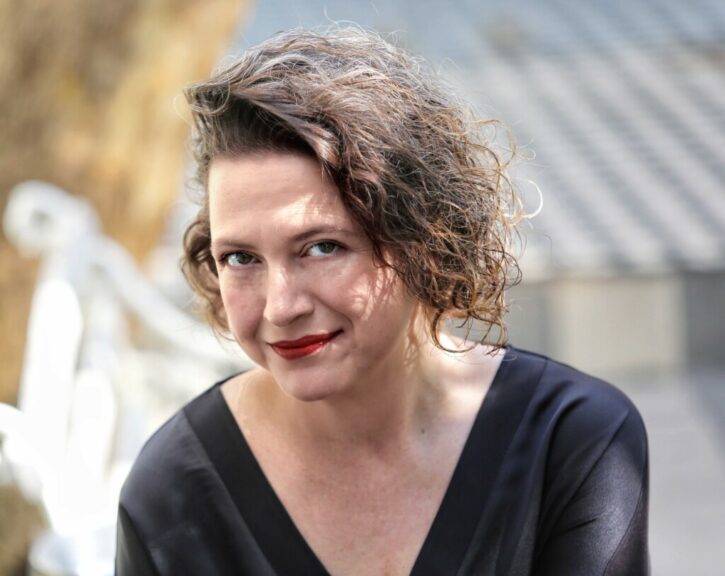
C.R. You call on the public to mobilize around an imprisoned filmmaker, this year a Turkish producer, Çigdem Mater. Could you have chosen more publicized cases such as those of Iranian filmmakers Rasoulof, Panahi, or even Russian filmmakers such as Oleg Sentsov? Is this on purpose?
I.S. The idea is precisely to highlight the cases that are not yet highly publicized, to provide support to those who need it most, to mobilize the population and to do everything necessary to get closer to the immediate release of those unjustly imprisoned. This year, indeed, our prevented patron is Çiğdem Mater, Turkish film producer, journalist, translator. She has been unjustly imprisoned since April 2022, and towards the end of April she was sentenced to 18 years in prison. She was accused of helping Osman Kavala of playing a leading role in the peaceful Gezi Park protests in 2013. Amnesty International is calling for her unconditional and immediate release, as well as for all her co-accused, all of whom Amnesty has recognized as prisoners of conscience.
C.R. Amnesty has been in existence for many years and has fought many battles. Can you tell us about some of the successes you have achieved that you are proud of and that make you feel good about your work?
I.S. An example to give you and which is especially related to our festival, is the release of Ramy Shaath, an Egyptian-Palestinian activist and our sponsor prevented from the 2019 edition. And all this is thanks to the incredible mobilization of several people, after 2 and a half years of mobilization! With his release and the joy of having won this fight, one of the most important things is to understand that every vote counts, that every action is important, that every – even small – commitment to the cause can change everything. This feeling of strength that each person has goes straight to the heart and inspires to fight and continue to fight other battles.

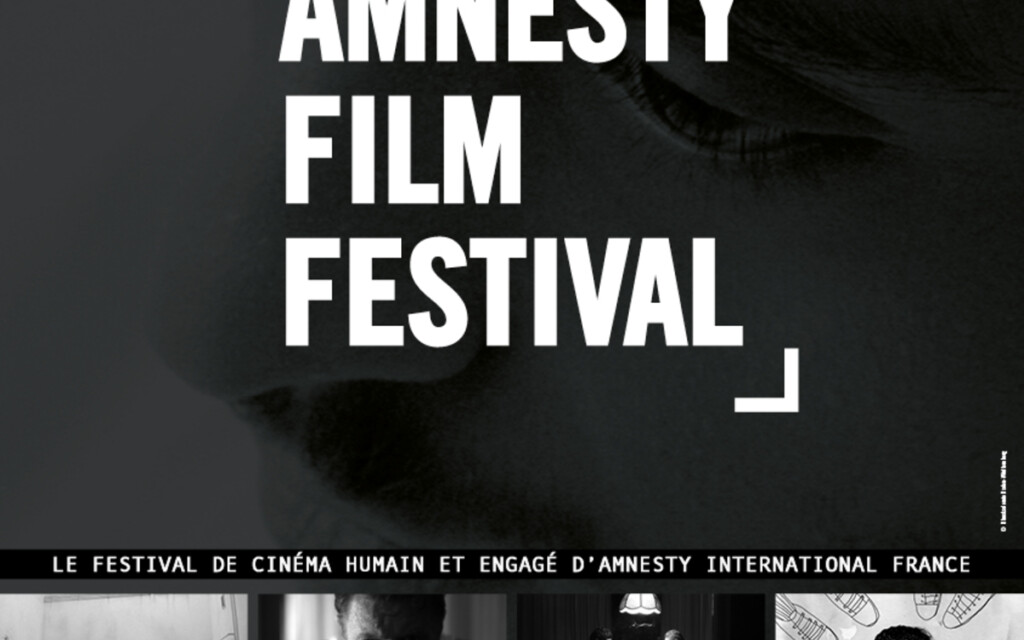
Be First to Comment